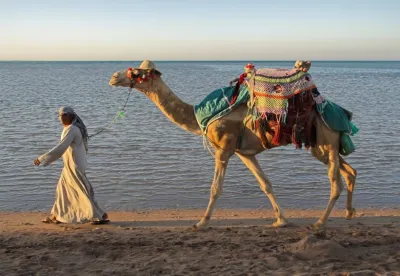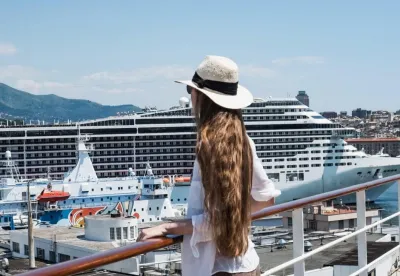
Economic activity in Argentina will close the year with a recovery of 10% driven by strong growth in tourism, hotels and restaurants, sectors that were hard hit by the Covid and quarantines to prevent the spread of the virus.
After the long weekend with record levels of tourist travel, the Minister of Productive Development, Matias Kulfas, said the economy recorded a "very strong" growth in the sectors "hardest hit by the pandemic," such as Argentinian tourism and gastronomy, and that this increase is pushing forward the economic activity that will close the year with a recovery of about 10%.
"The last (projection) we had was 9.4%, but what we are seeing is a very strong growth over the end of the year regarding the sectors hardest hit by the pandemic, which is gastronomy and tourism," so "the projection is closer to 10% than 9%," said Kulfas.
He pointed out that "the last two long weekends reached record tourism levels and we are projecting a very important season, supported by policies such as Pretravel," he also said that "this final recovery push of the year after the end of the second wave ends up projecting a higher growth" of the economy.
"The reality is that we are coming out of the black numbers, with great strength. We have an economy that has recovered practically everything it has lost in the pandemic. This year will grow about 10% and basically, we already have a scenario that allows us to project for future strong growth based on the recovery of all sectors hit by the pandemic, such as tourism and gastronomy," he said.
The president of the Federation of Hotel and Gastronomic Business of Argentina (Fehgra), Fernando Desbots, said: "What we have seen this weekend has been really valuable for us, because we come from an almost two years situation where hotels and restaurants were closed, and now we are finally seeing the light at the end of the tunnel.
He argued that the revival of the activity is "in part owed to Pretravel, which has been a very positive project that hopefully will last over time because it was born to help the economic activity," and said that thanks to the demand generated by this program "foreign operators want to find accommodation and domestic tourism is very strong.
In that line, Desbots pointed out that expectations for the summer season are very good regarding Argentinian tourism. "The reservations are at 50% on the Atlantic Coast, there are places that have even more reservations, which is very positive, there is more tourism than other years, the future gives us hope in that sense and that makes us smile.

In this regard, he said that "we must always keep in mind that the liabilities accumulated in these two years of closure has been very complicated," and that "the opening of the borders is essential for tourists to come from other countries for reviving tourism in Buenos Aires and the main cities".
Meanwhile, the president of the Federation of Commerce and Industry of the City of Buenos Aires (Fecoba, in Spanish), Fabian Castillo, said that "the expectation is positive" and that "for SMEs, December is a key month.
"The expectations are positive, but we must be very careful because this year and a half has led us to be more cautious when buying stock," said Castillo, he also stated that it was necessary to boost consumption so that "people have money in their pockets so they can buy what they need at the best possible price.”
Regarding the recovery of businesses, he said that "at the peak of the pandemic there were 21,000 closed establishments in the city of Buenos Aires, and now there are about 15,000".









